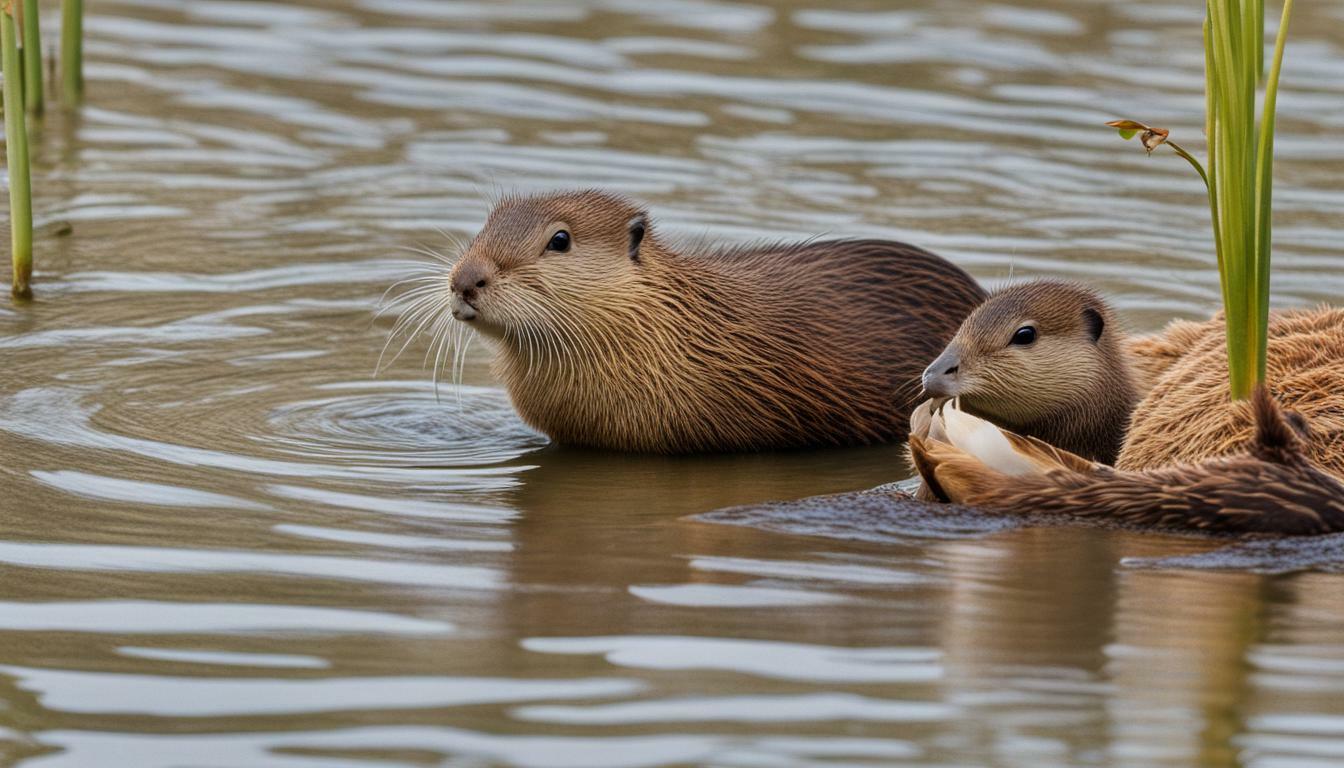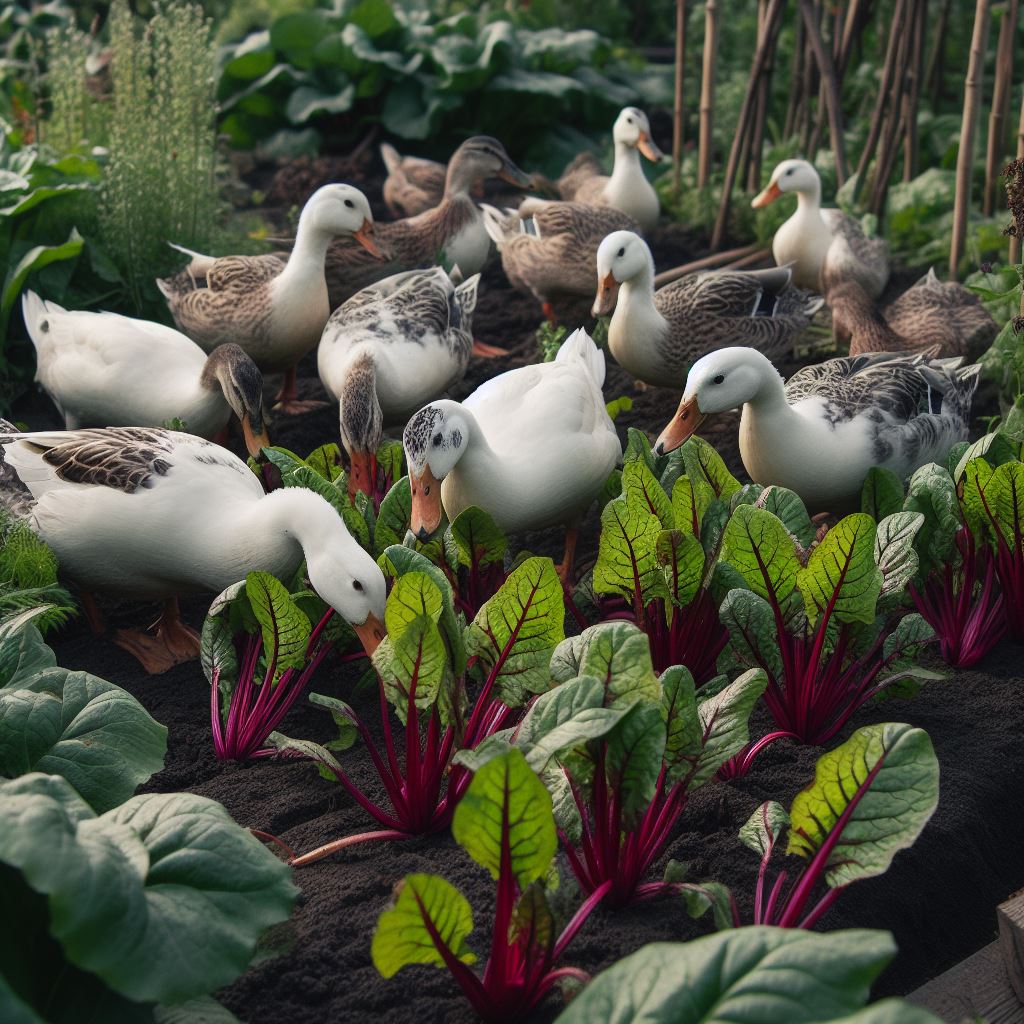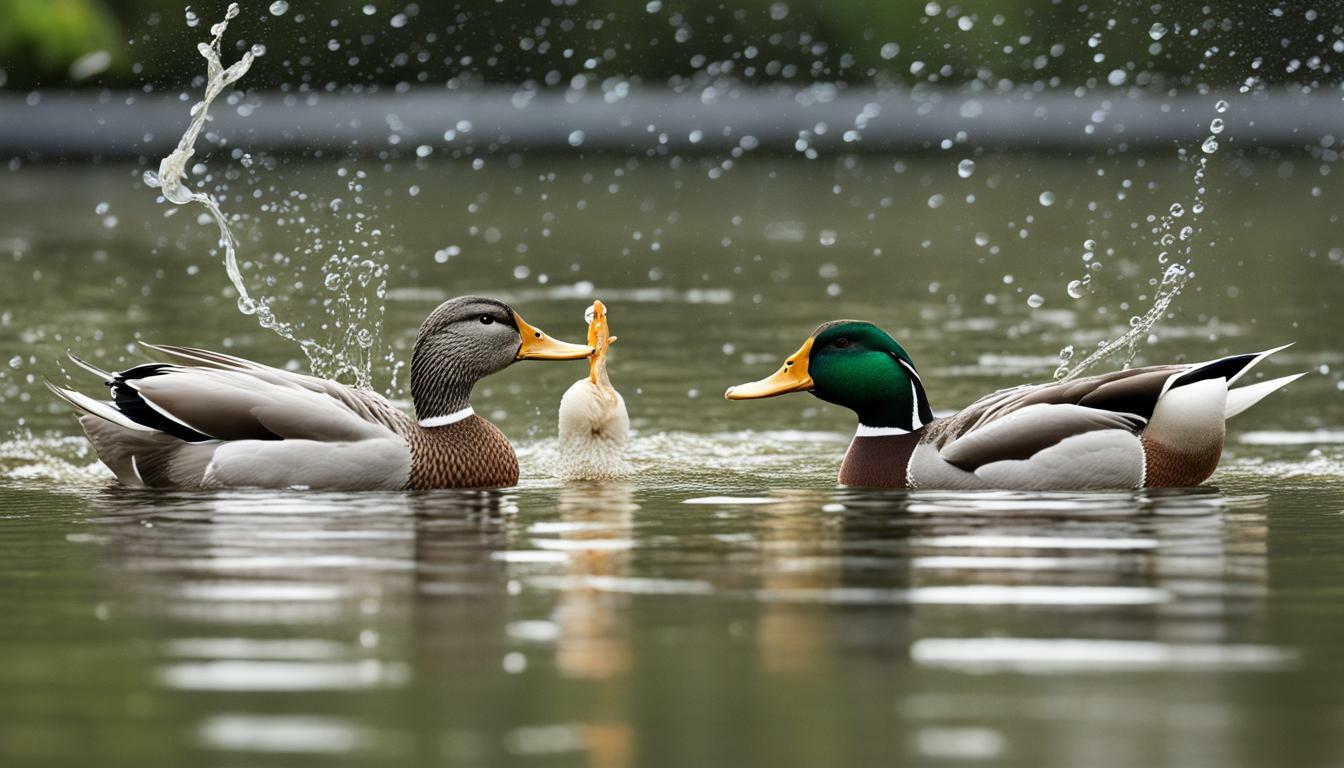Can Ducks Have Spinach? Your Friendly Guide to Duck Diet

Table of content:
Spinach is a classic superfood. Packed with vitamins and minerals like iron, calcium, and vitamin K, it’s one of the healthiest leafy greens around. But can our feathered friends benefit from eating spinach too?
Spinach offers nutrients ducks need like protein, vitamin A, and calcium. This makes it a great supplement to a balanced duck diet. However, there are some risks to feeding ducks spinach you should know.
Introduction to Spinach for Ducks
Spinach is a dark, leafy green vegetable loaded with nutrients. There are several types of spinach including smooth leaf, savoy, and semi-savoy. But most spinach you find at the grocery store is smooth leaf.
Spinach contains lots of:
- Protein – Spinach provides 2.9g protein per 100g serving. Protein supports muscle growth and maintenance.
- Vitamin A – This vitamin boosts duck immune systems and helps with eyesight.
- Vitamin K – Essential for proper blood clotting.
- Folate – Folate or folic acid helps ducklings develop properly.
- Iron – An essential mineral that helps carry oxygen in the bloodstream.
- Calcium – Vital for healthy bones and egg shells.
With all these nutrients, it’s easy to see why spinach appeals as a duck snack. The high protein and calcium content make spinach particularly beneficial. Let’s look closer at why ducks need these nutrients.
Why Ducks Need Protein
Protein is crucial for ducks to grow properly and stay strong and healthy. Developing ducklings need lots of protein for muscle development and growth.
Adult ducks need protein to maintain muscle mass and feather quality. Protein is also important for egg production. Eggs are made up of around 12% protein.
During molting season when ducks are regrowing feathers, their protein needs increase. Without enough protein, ducks may have delayed feather regrowth.
Since ducks don’t have teeth, they can’t chew large chunks of meat. So insects, fish, and plant sources are where ducks get their protein.
Why Ducks Need Calcium
Calcium is another nutrient ducks need large amounts of. Immature and laying ducks have especially high calcium requirements.
Developing ducklings require calcium to build their bones. Once ducks begin laying, calcium is essential for proper egg shell formation.
Ducks that don’t get enough calcium from their diet can suffer from thin shelled eggs. Not only does this make eggs more prone to breaking, ducks also have a hard time passing thin shelled eggs when laying.
Lack of calcium over prolonged periods can also lead to hypocalcemia or calcium deficiency. Weak bones are a major symptom of hypocalcemia in ducks.
Since spinach contains both protein and calcium, it makes sense to feed some to your flock. But even with these benefits, spinach does come with some risks.
Potential Risks of Feeding Ducks Spinach
Although spinach provides valuable nutrition for ducks, there are some potential downsides to keep in mind:
Oxalates
Spinach contains oxalates. Oxalates bind to calcium to form calcium oxalate crystals. This inhibits calcium absorption.
While oxalates are more of a concern for humans, very high amounts can impact duck health. Oxalates may contribute to kidney and bladder stones in some waterfowl.
Cooking spinach breaks down some of the oxalic acid, reducing oxalate content and improving calcium absorption.
Nitrates
Spinach can accumulate nitrate compounds from soil, especially when over-fertilized. Once ingested, nitrates convert into toxic nitrites in the duck’s digestive system.
High nitrate levels can cause methemoglobinemia or “blue baby syndrome”. This condition impairs the blood’s ability to carry oxygen, resulting in lethargy, trouble breathing, and bluish skin.
Buying organic spinach and avoiding overfeeding helps minimize excess nitrates.
Bacteria Risk
As with most fresh produce, spinach carries some risk of bacterial contamination like Salmonella and E. coli. Washing spinach well helps reduce bacteria levels.
The risk is generally low for ducks. But improper spinach storage could allow pathogens to multiply to dangerous levels before feeding.
Now that we’ve looked at the benefits and risks of feeding spinach to ducks, let’s talk about proper dosage.
How Much Spinach Can Ducks Eat?
When giving ducks new treat foods like spinach, moderation is key. Here are some tips for spinach portion sizes for ducks:
- Baby ducklings can eat around 1-2 leaves per day, chopped/torn into small pieces. Introduce tiny amounts first.
- For juvenile and adult ducks, feed 1-2 cups of chopped spinach 2-3 times per week.
- During high protein demand times like molting or egg production, you can increase to 1 cup spinach daily. Monitor egg quality and watch for diarrhea.
- For reference, spinach should make up no more than 10% of an adult duck’s daily food intake.
- Introduce spinach slowly over a week. Look for signs of digestive upset like loose droppings. Reduce amount if any diarrhea occurs.
- If also feeding other high-oxalate greens like beet greens or swiss chard, reduce spinach portion to 1⁄2 cup.
- Replace with lower oxalate greens like kale or romaine if you notice potential kidney issues.
Follow these spinach feeding guidelines to safely provide your flock the benefits without risking overdose. Now let’s look at the best way to prepare and serve spinach for your ducks.
How to Prepare and Serve Spinach for Ducks
Here are some tips for preparing spinach to maximize nutrition and minimize risks for your ducks:
- Choose organic baby spinach when possible to reduce chemical residues. Avoid spinach that is wilted or slimy.
- Rinse leaves well under cool running water even if organic. This washes away any bacteria that may be present. Pat dry with paper towels.
- Chop washed spinach into small pieces so ducks can swallow it easily. Shred larger leaves.
- Lightly steam or blanch spinach for 1-2 minutes to reduce oxalates and nitrates. Don’t overcook into mush. Run under cold water to stop cooking process.
- Mix a portion of prepared spinach in with their main feed at feeding times. This prevents selective feeding.
- Refrigerate any uneaten chopped spinach within 1-2 hours. Discard any that smells bad or looks spoiled.
By taking a bit of care prepping spinach, you can maximize the nutrition your flock gets from this green superfood. But what about other leafy greens?
Other Leafy Greens Ducks Can Eat
In addition to spinach, there are many other healthy leafy greens you can offer your ducks:
Kale
Kale is ultra-high in vitamins A, C, and K. The curly leaves also provide calcium, potassium, iron, and folate. Feeding kale 2-3 times per week helps boost nutrient intake.
Romaine Lettuce
Romaine is higher in vitamin A and folic acid than iceberg lettuce. It also contains some potassium, vitamin C, and iron. Romaine works well for occasional duck treats.
Swiss Chard
This green vegetable is high in vitamins A, C, K, and magnesium. But limit Swiss chard since oxalate levels are higher than spinach.
Carrot Tops
The leafy green tops offer more nutrition than the root. Carrot tops provide vitamin K, potassium, and beta-carotene for healthy eyes.
Bok Choy
Also called Chinese cabbage, bok choy is full of calcium, beta-carotene, and vitamin C. It makes a nutritious occasional snack for ducks.
Turnip Greens
Turnip leaves offer calcium, vitamin C, and folate. Chop them up to limit oxalates and feed them sparingly to ducks as a treat.
Beet Greens
The tops of beets are loaded with calcium, iron, and vitamins A and C. Since they are high in oxalates, feed beet greens in moderation.
Mix up these power-packed leafy greens to give your ducks variety. Follow the same dosage guidelines as for spinach. Wash thoroughly and chop into bite-sized pieces before serving.
Final Thoughts
Can ducks eat spinach? In moderation, spinach can be a nutritious supplemental food for ducks. Its high protein, vitamin, and mineral content offers health benefits. Follow the serving guidelines provided to prevent potential risks from oxalates and nitrates. Chopped spinach can be mixed into their feed a few times a week for extra nutrition. Offer a diverse range of leafy greens as well to give ducks the best diet possible. A varied diet full of fresh foods will keep your ducks happy and healthy.
Welcome. I’m Adreena Shanum, the proud owner of this website, and I am incredibly passionate about animals, especially poultry. I founded adreenapets.com as a labor of love, stemming from my desire to share my knowledge and experiences with poultry enthusiasts worldwide.




